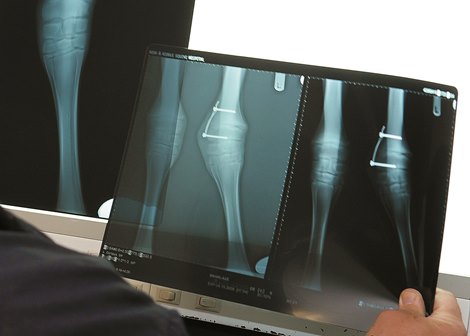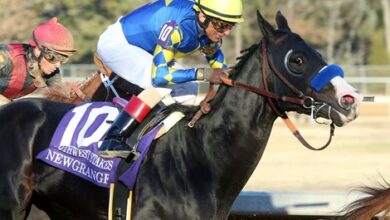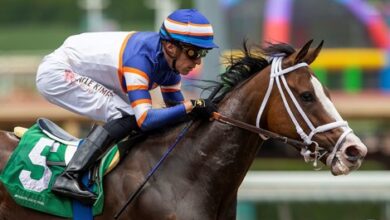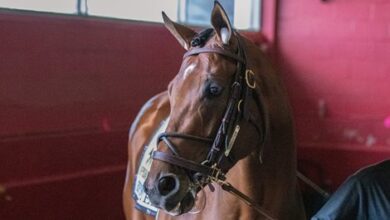RVC Determines Potential Genetic Factor in Fractures

New research from the Royal Veterinary College into genetic risks of fracture in Thoroughbred horses has found that horses with lower levels of collagen type III have a higher risk of fracture.
Previously, there has been limited research into this disease with no specific genetic mechanisms identified. However, these new findings have enabled the RVC to develop systems to identify genetically high-risk horses. This will provide a greater understanding of how best to identify, diagnose and manage horses at high risk of fractures and contribute to greater health and welfare of Thoroughbreds.
Bone fractures are common in Thoroughbred racehorses, due to the forces the bones can experience, and are sadly a leading cause of euthanasia, with approximately 60 horses each year having to be euthanized on United Kingdom racecourses because of this disease. However, fracture is a complex condition, with both environmental and genetic risk factors affecting a horse’s susceptibility.
Conducting the research, the team, led by Dr. Debbie Guest, senior research fellow at the RVC, developed a polygenic risk score, which provides a measure of disease risk due to a variety of genes, and used this to determine the distribution of scores across the general UK Thoroughbred population.
The team then utilized this information to select cells from horses whose risk placed them at the extreme ends of the population with either very low or very high risk. These cells were then used in laboratory studies to establish a cell model and investigate the genetic factors involved in fracture risk.
The research found that collagen type III, a gene required for normal bone formation, is expressed at lower levels in bone cells from horses with a high genetic risk of fracture. This is because they have a change in their DNA sequence in the region, which controls how much collagen III is produced.
Additional research is now being conducted to validate the risk-scoring system in another cohort of horses. Further studies using this system and cell model will help to identify other genes and processes to better understand why some horses are inherently more susceptible to fracture than others.
“Bone fractures are a major welfare concern in Thoroughbred racing,” Guest said. “We know that there are many environmental risk factors for fracture and much has been done over the years to reduce these risks. Despite this effort, fractures sadly still occur, and we know that some horses are genetically more predisposed to fracture than others.
“The development of a polygenic risk score for fracture will allow us to identify horses that are at high genetic risk to allow the targeted use of diagnostic imaging and close monitoring of their bone health. This study has also demonstrated the power of using cell models to work out what differences exist in bone cells from high and low-risk horses and therefore why some horses are at high risk. This is vital to develop new interventions for high-risk horses in the future so that they are less likely to suffer from a catastrophic fracture”.
The research was funded by the Horserace Betting Levy Board, the Anne Duchess of Westminster Charitable Trust and The Alborada Trust.
This press release has been edited for content and style by BloodHorse Staff.




